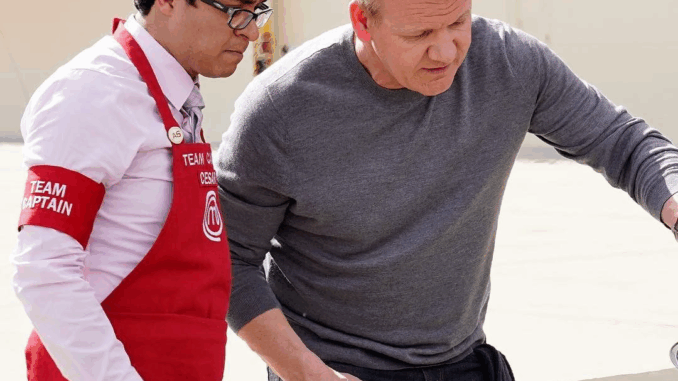
I never thought a single encounter with Gordon Ramsay could change my life in such a destructive way. Like millions of others, I tuned into his shows, laughed at the fiery insults, and even admired the way he seemed to whip failing restaurants into shape. But when I ended up on the receiving end of his rage, the admiration curdled into something else entirely. What was once entertainment became a nightmare I still can’t shake.
At first, I was excited. “This could save us,” I told my partner the night we learned Gordon Ramsay’s production team had chosen our place. We weren’t perfect — the paint was chipped, the menu uneven — but we were part of the town’s soul. Students came for the cheap beer, locals came for comfort, and our regulars never cared that the tables didn’t shine. It wasn’t glamorous, but it was ours.
When Gordon arrived, though, it felt like a storm. Cameras, producers, assistants — they all swarmed in. He looked around with that familiar sneer, and within minutes he slammed a chair against the floor. “This is disgusting,” he shouted. “How could anyone eat in a place like this?”
I stood there, frozen. “It’s not perfect, but it’s home,” I whispered under my breath. He didn’t hear me. Or maybe he didn’t care.
The next few hours blurred together: Gordon tossing plates of food, spitting out a bite of our signature dish, yelling into my face so close I could feel the heat of his breath. “You call this edible? It’s garbage! Absolute garbage!” he roared. I wanted to defend myself, but the cameras caught every flinch, every tear. Later, I realized my humiliation wasn’t just for him — it was for the millions who would watch at home and laugh.

“They’ll edit it to make us look like fools,” my cook muttered afterward. He was right. When the episode aired, the cheers and warmth of our community were erased, replaced by a caricature: the clueless owners, the failing dive, the villain Gordon swoops in to destroy before ‘saving.’ Except there was no saving.
The changes he forced on us looked sleek on TV, but they gutted our soul. Gone were the $2 beers and $1 slices that kept our bar alive. “No one wants this overpriced nonsense,” a regular complained the first night after filming. And then another: “Where’s the food we loved?” Week by week, they stopped coming.
And me? I stopped sleeping. Every night, I replayed his words. “You’re pathetic. You shouldn’t be in this business.” They looped in my head like a curse. I’d wake up sweating, hearing his voice in my dreams, until I started to believe it.
Friends tried to comfort me. “It’s just TV,” they said. But TV has power. People pointed at me in the grocery store, whispering, “That’s the guy Gordon Ramsay destroyed.” My confidence, my business, my place in the community — all of it collapsed. Within months, I sold the bar. Within a year, I couldn’t walk past the building without feeling sick.
The cruelest part is that Gordon walked away untouched. He moved on to the next show, the next victim, the next angry outburst to entertain the crowd. Meanwhile, I was left behind with nothing but the ashes.
Sometimes people ask me if it was worth it, if at least I got exposure, publicity, a moment in the spotlight. And I tell them the truth: “It ruined me. It ruined us.”
If you’ve ever watched Gordon Ramsay scream at someone and laughed, I hope you think about what’s behind that scene. Because for me, those minutes on TV turned into years of shame. He didn’t just insult the food — “This is the worst kitchen I’ve ever seen in my life!” — he insulted me, my staff, and everything we had built.
And that damage doesn’t go away when the cameras stop rolling.